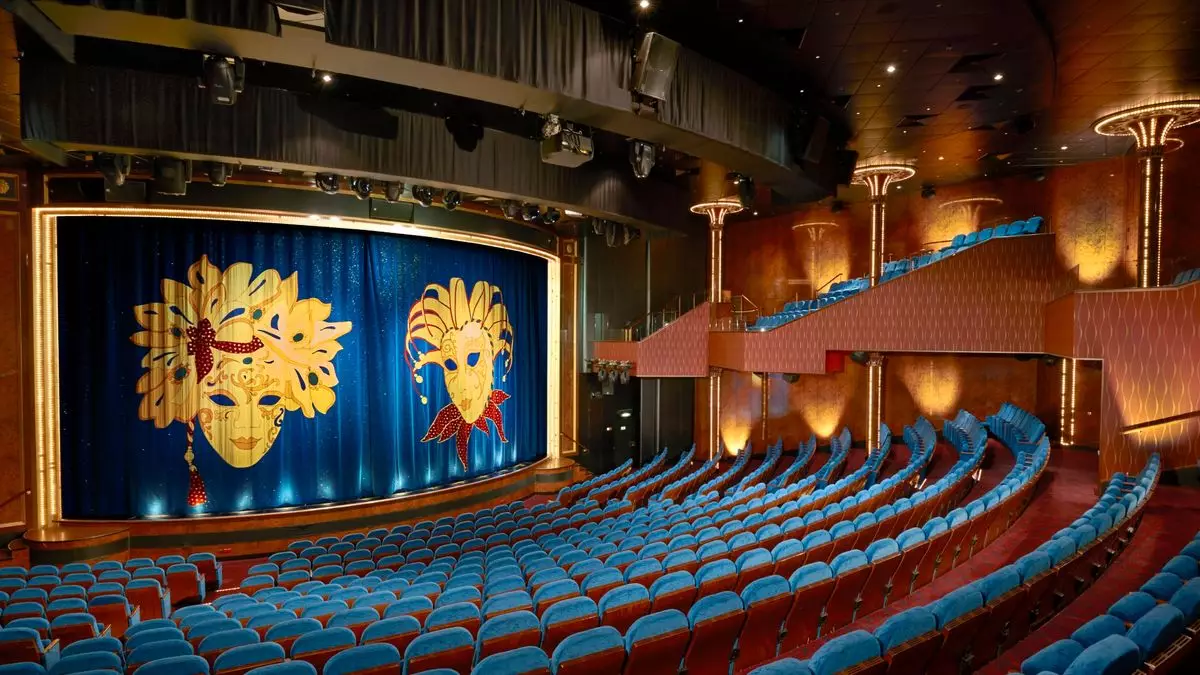The cruise industry has long been synonymous with lavish entertainment options, ranging from theatrical productions to glamorous performances. However, Norwegian Cruise Line (NCL) has recently made significant shifts in its entertainment offerings that reflect changing guest preferences and operational strategies. The discontinuation of high-profile Broadway-style shows, such as “The Donna Summer Musical,” marks a pivotal moment for the company as it pivots towards an “in-house” production model that promises to enrich guest experiences without sacrificing entertainment quality.
When Norwegian Prima set sail in August 2022, it did so with an ambitious entertainment lineup, showcasing a version of “The Donna Summer Musical” as its headlining act. Fast forward two years, and the company found itself reassessing its approach. NCL Holdings CEO Harry Sommer revealed the challenges associated with these elaborate productions, stating, “We needed a full-time wig master,” highlighting the complexities and resource demands that came with staging Broadway hits. The unfortunate illnesses of vital crew members exemplified the fragility of such productions, leading to interruptions that should be avoided on a cruise meant for relaxation and enjoyment.
The decision to move away from high-maintenance shows stems from a broader ethos of NCL: focusing on a “return on experience.” This philosophy implies that the company aims to optimize guest satisfaction while minimizing disruptions. Guests should not have to endure lengthy wait times or missed performances due to unforeseen circumstances involving cast members. As a result, the cruise line is shifting its focus toward more streamlined productions that can easily adapt to changes in personnel.
Sommer’s insights into guest preferences reveal a company grappling with the nuances of entertainment economics. According to him, NCL’s data indicates that guests gravitate toward shorter, more vibrant performances rather than drawn-out Broadway-style productions. The data backs his assertion that less extravagant, in-house shows often yield higher guest satisfaction. “Our highest-rated entertainment was the entertainment that cost us the least,” he stated, drastically redefining the correlation between production scale and guest enjoyment.
This pivot is not unique to NCL. Other cruise lines, such as Royal Caribbean, have struggled with similar challenges when balancing guest satisfaction against the opulence and duration of their entertainment offerings. For instance, my personal experience with “We Will Rock You” onboard Royal Caribbean’s Anthem of the Seas exemplifies this conflict. While the music was compelling, the lengthy format detracted from the overall enjoyment—a concern echoed by many cruise patrons who seek a more varied and dynamic experience onboard.
Norwegian Cruise Line’s new strategy emphasizes the development of engaging content created within the company rather than relying solely on adaptations of external theatrical productions. This approach has the dual benefits of reducing overall costs and allowing for quicker adaptations to guest feedback. By crafting unique shows, NCL can ensure that their entertainment remains relevant, lively, and easily consumable within the preferred 30 to 40-minute timeframe.
To illustrate this shift, NCL has managed to retain select crowd-pleasers such as a condensed version of “Beetlejuice” and the enduring “Jersey Boys.” This hybrid approach—offering both original creations and select Broadway adaptations—potentially balances diverse guest tastes while maintaining operational efficiency.
The cruise industry’s landscape continues to evolve, driven by changing consumer preferences and operational necessities. Summer’s assertion that entertainment options must adapt to changing tastes aligns with a broader trend across travel industries. The emphasis on efficient entertainment that maximizes guest satisfaction while minimizing operational complexity suggests a future where cruise experiences could become even more varied and personalized.
As NCL continues to refresh its entertainment offerings, it stands at a crossroads, facing the challenge of maintaining its legacy of thrilling performance while adapting to emerging trends. There lies the promise of a balanced offering—focused on guest satisfaction, seamless experience, and innovative production—that could redefine what cruise entertainment looks like in a post-pandemic world. The pivot away from Broadway-style shows may prove to be not merely a necessity but an opportunity for NCL to enhance every voyager’s experience at sea.

